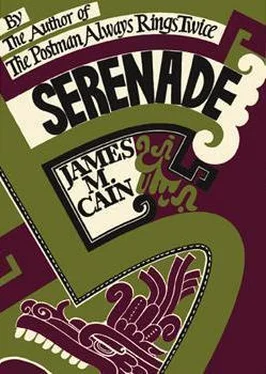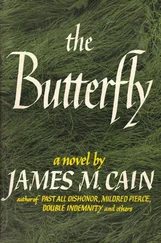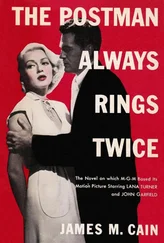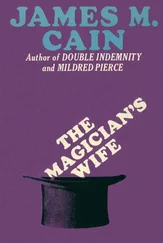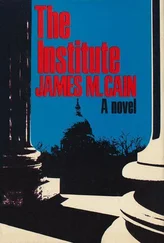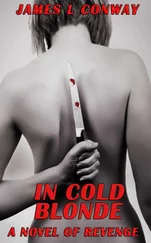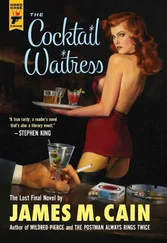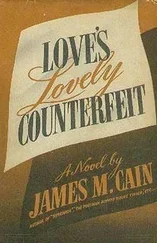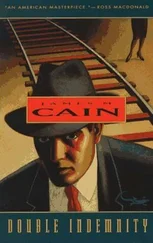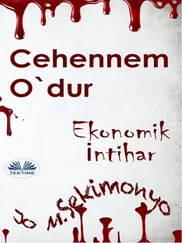The producer shook his head. His name was Beal, and he and the director and the writer had been listening like it was merely painful, my whole idea. “It’s impossible.”
“Why is it impossible? You can put all those parts on your loops, I know you can. After you’ve checked your synchronization, you run them off and make your sound track. It’s absolutely possible.”
“Listen, we got to do it big, see? That means we got to do retakes, we got to put more production in, and if I got to spend money, I’d a hell of a sight rather spend it on that than on this. This way you say, I got to pay an arranger, I got to hire an orchestra—”
“Arranger, hell. It’s already arranged. I’ve got the parts right here. And what orchestra?”
“For the kettle drum, and—”
“I play the kettle drum myself. On every repeat of the song, I tune it up. Just a little higher, to get a sense of climax, a little louder, a little faster. Don’t you get it? They’re getting near home. It’ll build. It’ll give you what you’re looking for, it—”
“Nah, it’s too tricky. Besides, how can a goddam cowboy be singing quartets with himself out there in the snow? They wouldn’t never believe it. Besides, we got to pump up the rest of the picture, the beginning—”
“O.K., we’ll do that, and then they’ll believe everything. Look.”
It had suddenly popped in my mind about my voice coming back at me, that night in the arroyo, and I knew I had something. “In that campfire song, the second one, Home On The Range, we do a little retake and show him singing it at the mountains. His voice comes back, in an echo. It surprises him. He likes it. He begins to fool around with it, and first thing you know, he’s singing a duet with himself, and then maybe a trio. We don’t do much with it. Just enough that they like it, and we establish it. Then in the snow scene it’s not tricky at all. It’s his own voice coming back at him from all over that range — out there all alone, bringing home those sheep. They can believe it then, can’t they? What’s tricky now?”
“It’s not enough. We got to do retakes.”
Up to then the sound man had sat like he was asleep. He sat up now and began to make marks on a piece of paper. “It can be done.”
“Even if it can be done, it’s no good.”
“It can be done, and it’s good.”
“Oh, you’re telling me what’s good?”
“Yeah, I’m telling you.”
The technical guys on a lot, they’re not like the rest of them. They know their stuff, and they don’t take much off a producer or anybody. “You went and bought ten thousand feet of the prettiest snow stuff I ever saw, and then what did you do? You threw out all but four hundred feet of it. It’s a crime to waste that stuff, and the lousy way you fixed up the story, there’s no way to get it in but the way this guy says. All right then, do like he says, and get it in. It’ll build, just like he says it will. You’ll get all those angle shots in, all those far shots of miles of sheep going down that mountain, all but the little bits that you never even tried to get in before, and then toward the end of it, the ranchhouse where they’re getting near home. I’ll give him a light mix on the first of it, and on all the far shots, and when we get near the end — we cut her loose. That kettle drum, that’s O.K. It’ll get that tramp-tramp feel to it, and go with the music. The echoes on Home On The Range I can work with no trouble at all. It’s O.K. And it’s O.K. all down the line. It’s the only chance you got. Because listen: either this is a little epic all by itself, or it’s a goddam cheapie not worth hell room. Tal your pick.”
“Epic! That’s what I’ve been trying to get.”
“Well then, this is how you get it.”
“All right, then, fix it up like he says. Let me know when you’ve got something for me to look at.”
So he, I, and the cutter went to work. When I say work I mean work. It was sing, rewrite the parts, test the mix, run it off, and do it all over again from morning to night, and from night to almost morning, but after a couple of weeks we had it done and they gave it another preview, downtown this time, with the newspapers notified. They clapped, cheered, and gave it a rising vote. The Times next morning said “Woolies” was “one of the most vital, honest, and moving things that had come out of Hollywood in a long time,” and that “John Howard Sharp, a newcomer with only featured billing, easily stole the picture, and is star material, unless we miss our guess. He can act, he can sing, and he has that certain indefinable, je-ne-sais-quoi something. He’s distinctly somebody to watch.”
So the next day eight guys showed up to sell me a car, two to sell me annuities, one to get me to sing at a benefit, and one to interview me for a fan magazine. I was a Hollywood celebrity overnight. When I went on the lot in the afternoon I got a call to report to the office of Mr. Gold, president of the company. Ziskin was there, and another producer named London. You’d have thought I was the Duke of Windsor. It seemed I wasn’t to wait till Ziskin got his script ready. I was to go into another one that was waiting to shoot. They had been dickering with John Charles Thomas for it, but he was tied up. They thought I would do just as well, because I was younger and bigger and looked the part better. It was about a singing lumberjack that winds up in grand opera.
I said I was glad they liked my work, and everything was fine if we could come to terms on money. They looked kind of funny, and wanted to know what I was talking about. We had our agreement, and I was pretty well paid for a man that started in pictures just a little while ago.
“We did have an agreement, Mr. Gold.”
“And we still got it.”
“It ran out today.”
“Get his contract, Ziskin.”
“He’s sewed for five years, Mr. Gold, absolutely for five years from the date on the contract, with options every six months, same as all our talent, with a liberal increase, two fifty I think it was, every time we take up our option. A fine, generous contract, and frankly, Mr. Sharp, I am much amazed by the attitude you’re taking. That won’t get you nowheres in pictures.”
“Get his contract.”
So they sent down for my contract, and a secretary came up with it, and Gold took a look at it, put his thumb on the amounts and handed it over. “You see?”
“Yeah, I see everything but a signature.”
“This is a file copy.”
“Don’t try to kid me. I haven’t signed any contract. That may be the contract you were going to offer me, but the only thing that’s been signed is this thing here, that ran out today.”
I fished out the memo I had got off Ziskin that night in the dressing-room. Gold began to roar at Ziskin. Ziskin began to roar at the secretary. “Yes, Mr. Ziskin, the contract came though at least a month ago, but you gave me strict orders not to have any contracts signed until you gave your personal approval, and it’s been on your desk all that time. I’ve called it to your attention.”
“I been busy. I been cutting Love Is Love.”
The secretary went. Ziskin went. London looked sore. Gold began drumming on his desk with his fingers. “O.K., then. If you want a little more dough, something like that, I guess we can boost you a little. Tell you what we do. We won’t bother with any new contract. You can sign this one here, and we’ll take up the first option right away, and that’ll give you twelve fifty. No use quarreling about a few hundred bucks. Report on the set tomorrow morning to Mr. London here, and you better be going down and getting measured for your costumes so you can start.”
“I’m afraid twelve fifty won’t do, Mr. Gold.”
Читать дальше
